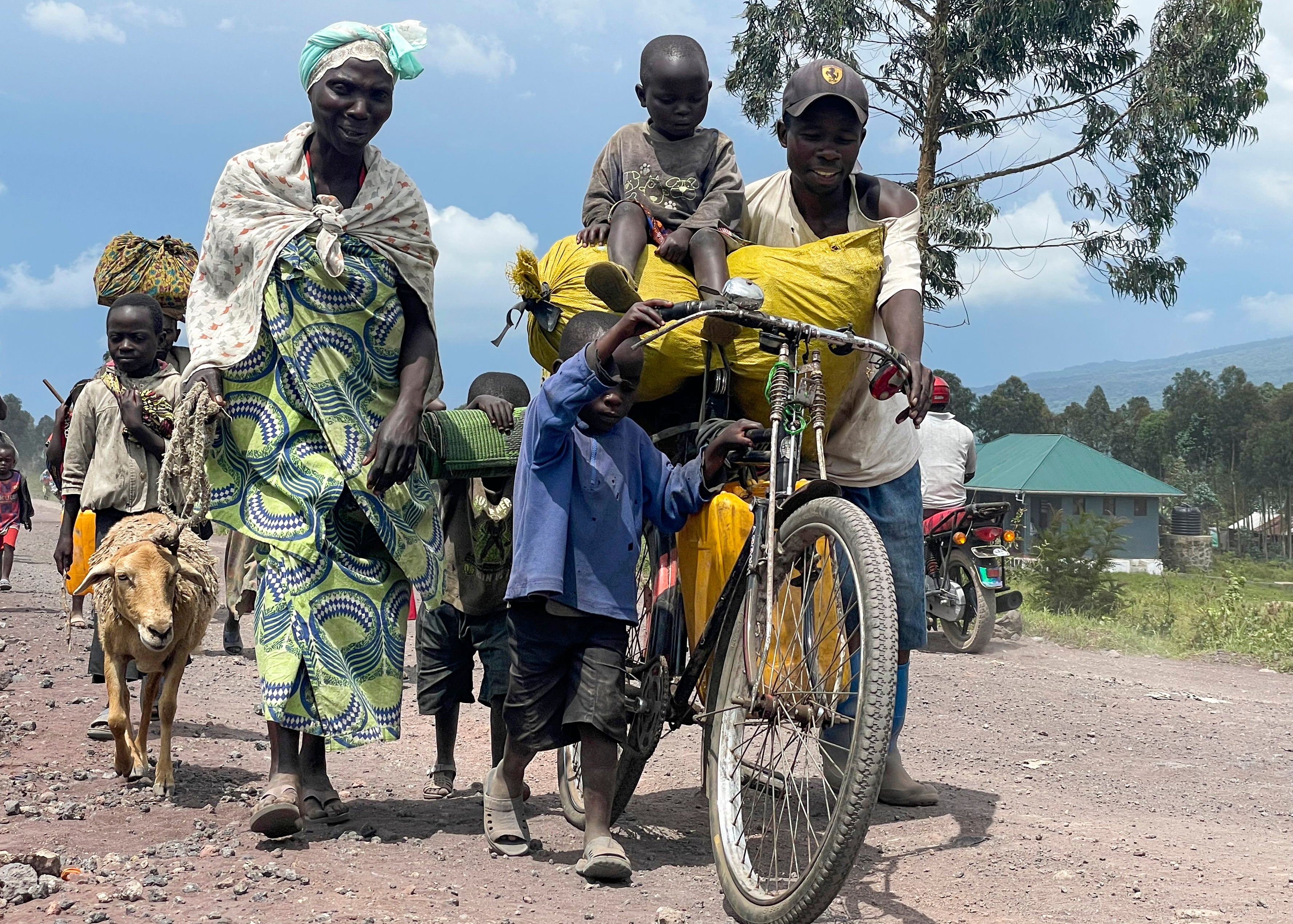Rebel attacks in restive northeastern Congo kill at least 21 people over the weekend, officials say
Officials and activists say that rebel groups — including one with ties to the Islamic State group — killed at least 21 people in restive northeastern Congo over the weekend

Your support helps us to tell the story
From reproductive rights to climate change to Big Tech, The Independent is on the ground when the story is developing. Whether it's investigating the financials of Elon Musk's pro-Trump PAC or producing our latest documentary, 'The A Word', which shines a light on the American women fighting for reproductive rights, we know how important it is to parse out the facts from the messaging.
At such a critical moment in US history, we need reporters on the ground. Your donation allows us to keep sending journalists to speak to both sides of the story.
The Independent is trusted by Americans across the entire political spectrum. And unlike many other quality news outlets, we choose not to lock Americans out of our reporting and analysis with paywalls. We believe quality journalism should be available to everyone, paid for by those who can afford it.
Your support makes all the difference.Rebel groups, including one with ties to the Islamic State group, killed at least 21 people in restive northeastern Congo over the weekend, local officials said Monday.
Isaac Kibira, deputy delegate of the governor in the Central African nation’s northeastern Bwito township, said the victims in one attack were shot and killed early Sunday by members of M23, a rebel group the United Nations says has links to neighboring Rwanda. Rwanda denies the accusation.
In a second attack on Saturday, armed rebels with ties to the Islamic State group killed 10 civilians in a restive province in northeastern Congo, a local human rights activist said.
Conflict has simmered in eastern Congo for decades as more than 120 armed groups fight for control of valuable mineral resources and some to protect their communities. Mass killings by rebel groups are frequent, and the violence has triggered an exodus of refugees.
M23 rose to prominence 10 years ago when its fighters seized Goma, eastern Congo’s largest city, located on the border with Rwanda. It derives its name from a March 23, 2009, peace deal that the group accuses Congo's government of failing to implement.
The attack took place at 3 a.m. Sunday morning following armed confrontations between M23 and local self-defense groups near the village of Bwito, where the bodies of the 11 civilians were found, Kibira said. The rebel group reportedly retreated into the area, killed residents, burned homes, and stole valuables.
According to local civil society leader Jonas Pandanzi, troops from a regional intergovernmental organization who were deployed in the area did not intervene. The death toll is provisional, he said, as some local residents were missing in the wake of the attack.
“We call on our government to assume its responsibilities and not continue to rely on agreements and declarations (with armed rebels). We need to find other mechanisms to protect the population,” Kibira said.
Christophe Munyanderu, a human rights activist and coordinator in Ituri province, said on local radio that 10 civilians were killed Saturday by members of the Allied Democratic Forces, or ADF, which has established ties with the Islamic State group. The group rarely claims responsibility for attacks.
The victims, along with five others killed in a July 29 attack in the same chiefdom of Walese-Vilonkutu, have yet to be properly buried, Munyanderu said. Their bodies are scattered in the forest, and some of them have begun decomposing, he said.
“We ask the (Congolese) military to accompany young volunteers to bury the bodies of our compatriots,” said Munyanderu.
The ADF has been accused of launching many attacks in recent years targeting civilians in remote parts of eastern Congo and across the border in Uganda, including one in June in which 42 people, mostly students, were killed.